#bill hayes
Text
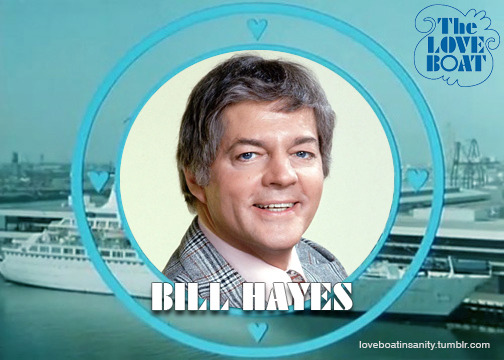
R.I.P. Bill Hayes
13 notes
·
View notes
Text

William Foster Hayes III (June 5, 1925 – January 12, 2024) Actor and recording artist. His song "The Ballad of Davy Crockett" hit the top of the Billboard charts in the spring of 1955.
Following a successful career as a musician which began in the late 1940s, Hayes began to focus on dramatic acting parts in the late 1960s, which led him to be cast in a role that gained him additional fame to a younger generation. This new chapter began in 1970 when he originated the character of Doug Williams on NBC's Days of Our Lives, which he continued to play until 2023.
Hayes was a singer on the Sid Caesar and Imogene Coca variety show Your Show of Shows in the early 1950s. During the Davy Crockett craze in 1955, three recorded versions of the Ballad of Davy Crockett were in the top 30. Hayes' version was the most popular: It was #1 on the Billboard Hot 100 for five weeks, sold over two million copies, and was awarded a gold disc.
On Days of Our Lives, Hayes was introduced as a convict who was also a lounge singer.
The character of Doug returned in 1986 and 1987 as well as 1993 and 1996. Later, he was on the show from 1999 onwards. His character was killed off in the spring of 2004 by Dr. Marlena Evans. In an elaborate plot hatched by head writer James E. Reilly, Doug turned up alive on a tropical island and went home to his wife. (Wikipedia)
IMDb Listing
7 notes
·
View notes
Text
Year-End Poll #6: 1955

The sound of a decade does not change the minute the ball drops on New Year's Eve. With the benefit of hindsight, it's easier to form these cultural shifts into a narrative, even when said shifts aren't always obvious. 1955 offers us the music we've grown accustomed to over the course of this decade: traditional pop, vocal quartets, jazz standards. However, this year also gives me an opportunity to highlight some different genres that will come to shape the decade in the years to come.
The post-war 1950s saw a boom in popularity when it came to music from South and Central America. We saw this before with the inclusion of other Spanish language songs reaching the Top 30, but artists like Pérez Prado and later Ritchie Valens helped to popularize Latin music in the States. Pérez Prado is, of course, known for popularizing mambo, a Cuban genre of dance music, by incorporating big band influence. The Prado song featured on this poll is not mambo, but rather one of its descendants, cha-cha.
In 1955 year-end chart, we're seeing the first traces of a genre of music that will help define the decade's sound: rock and roll. With the inclusion of Bill Haley's Rock Around the Clock, we're seeing the first rock and roll song to top the Billboard charts. Obviously, rock and roll has existed long before Bill Haley and Pat Boone reached the top 10. Unfortunately, like many other historically Black genres, white faces typically sold better with mainstream audiences. Is this the last we'll see of record executives using white performers to market Black music to white audiences?
Foreshadowing is a literary device--
More information about this blog here
#billboard music#billboard poll#1950s music#music poll#perez prado#bill haley#mitch miller#roger williams#les baxter#bill hayes#the four aces#the mcguire sisters#pat boone#georgia gibbs
29 notes
·
View notes
Photo
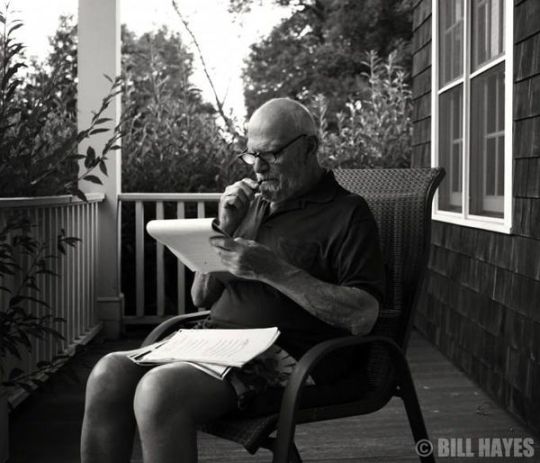
"Above all, I have been a sentient being, a thinking animal, on this beautiful planet, and that in itself has been an enormous privilege and adventure."
--Oliver Sacks/From "Gratitude"
Alfred A. Knopf :: [Follies Of God]
55 notes
·
View notes
Text

Korn - MTV Unplugged (March 5th, 2007)
Country: United States
Genre: Acoustic
Lineup:
Jonathan Davis - Vocals
James "Munky" Shaffer - Guitar
Reginald "Fieldy" Quincy - Bass
Guest/Session:
Rob Patterson - Additional Guitar
Kalen Musmecci - Percussion, Backing Vocals
Michael Jochum - Percussion
Zachary Baird - Keyboards
Jeremy Turner - Cello
Evie Koh - Cello
Julie Green - Cello
Erik Friedlander - Cello
Bill Ellison - Upright Bass
Jeff Carney - Upright Bass
Michael Davis - Trombone
Jeff Nelson - Trombone
Dale Struckenbruck - Musical Saw
Bill Hayes - Glass Armonica
Morris Kainuma - Cimbasso
Andy Bove - Cimbasso
Hana Yoshikawa, Heather McPherson, Wynn Yamami, Midori Yasuda, Alan Okada, Merle Okada - Taiko Drums
Tracklist:
Blind - 03:29
Hollow Life - 03:24
Freak On A Leash - 03:55
Falling Away From Me - 03:55
Creep - 03:51
Love Song - 03:50
Got The Life - 03:48
Twisted Transistor - 03:00
Coming Undone - 03:35
Make Me Bad/In Between Days - 05:35
Throw Me Away - 06:20
Dirty - 04:05
#Telegram#Korn#Acoustic#Jonathan Davis#Munky#Fieldy#Rob Patterson#Kalen Musmecci#Michael Jochum#Zachary Baird#Jeremy Turner#Evie Koh#Julie Green#Erik Friedlander#Bill Ellison#Jeff Carney#Michael Davis#Jeff Nelson#Dale Struckenbruck#Bill Hayes#Morris Kainuma#Andy Bove#Hana Yoshikawa#Heather McPherson#Wynn Yamami#Midori Yasuda#Alan Okada#Merle Okada#United States#USA
4 notes
·
View notes
Text
Another one gone. RIP.
3 notes
·
View notes
Text
for as long as i've been alive they've been doing the Horton Christmas ornaments and i can't imagine having it without Bill Hayes. gutted for Susan and his kids.
5 notes
·
View notes
Photo
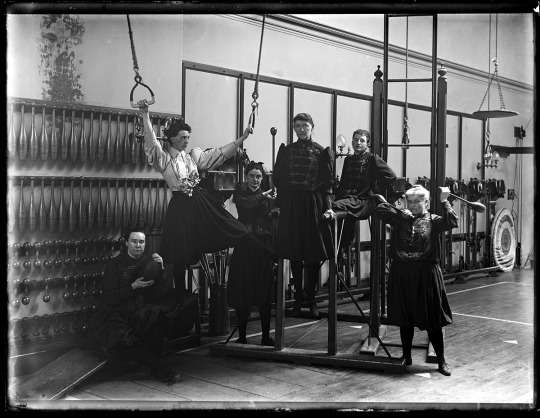
A cultural-scientific history of exercise.
32 notes
·
View notes
Text
“We introduced ourselves; his name was Harold. It was past midnight and we were both going home — I to Christopher Street, Harold to 155th. Now, I still didn’t know a lot about subway lines at the time but felt pretty sure that if Harold wanted 155th, he was headed the wrong way, and I gently told him so. He responded with a seeming non sequitur, ‘Sometimes, Billy, you have to go down to go up.’ Just then a train came and we rode together to Forty-Second Street, where Harold got off and disappeared into a crowd. It was only then that I understood he hasn’t been dispensing sage advice about weathering the ups and downs of life in New York. The uptown station at Fiftieth Street had merely been closed.”
Insomniac City, Bill Hayes
5 notes
·
View notes
Text
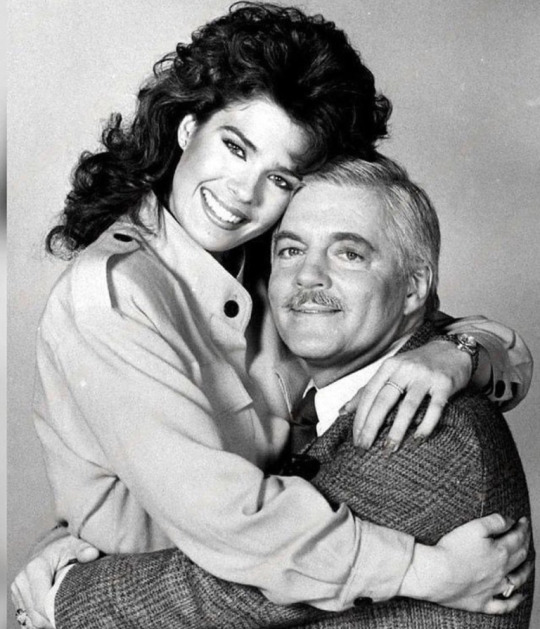
Kristian Alfonso & Bill Hayes
1 note
·
View note
Text
In Memoriam: Ben Hayes (1925 - 2024)
William Foster Hayes III (June 5, 1925 – January 12, 2024) was an American actor and recording artist. His song “The Ballad of Davy Crockett” hit the top of the Billboard charts in the spring of 1955.
Following a successful career as a musician which began in the late 1940s, Hayes began to focus on dramatic acting parts in the late 1960s, which led him to be cast in a role that gained him…
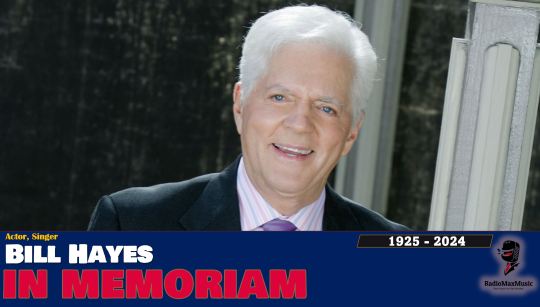
View On WordPress
0 notes
Text
#70s tv#80s tv#60s tv#90s tv#bill Hayes#Doug Williams#days of our lives#soap opera#actor#death#julie williams#Susan seaforth hayes
0 notes
Text
Listening Post: Kim Gordon

Kim Gordon has long been one of rock’s female icons, one of a tiny handful of women to get much play in Michael Azzerad’s underground-defining Our Band Could Be Your Life and a mainstay in the noise-rock monolith Sonic Youth. It’s hard to imagine that quintessential dude rock band without Gordon in front, dwarfed by her bass or spitting tranced out, pissed off verses over the storm of feedback.
Yet Gordon’s trajectory has been, if anything, even more fascinating since Sonic Youth’s demise in 2011. A visual artist first — she studied art at the Otis College of Art and Design before joining the band — she continues to paint and sculpt and create. She’s had solo art shows at established galleries in London and New York, most recently at the 303 Gallery in New York City. A veteran of indie films including Gus van Zant’s Last Days and Todd Haynes I’m Not There, she has also continued to act sporadically, appearing in the HBO series Girls and on an episode of Portlandia. Her memoir, Girl in a Band, came out in 2015.
But Gordon has remained surprisingly entrenched in indie music over the last decade. Many critics, including a few at Dusted, consider her Body Head, collaboration with Bill Nace the best of the post-Sonic Youth musical projects. The ensemble has now produced two EPs and three full-lengths. Gordon has also released two solo albums, which push her iconic voice into noisier, more hip hop influenced directions. We’re centering this listening post around The Collective, Gordon’s second and more recent solo effort, which comes out on Matador on March 8th, but we’ll likely also be talking about her other projects as well.
Intro by Jennifer Kelly
Jennifer Kelly: I missed No Home in 2019, so I was somewhat surprised by The Collective’s abrasive, beat-driven sound though I guess you could make connections to Sonic Youth’s Cypress Hill collaboration?
youtube
The more I listen to it, though, the more it makes sense to me. I’ve always liked the way Gordon plays with gender stereotypes, and “I’m a Man” certainly follows that trajectory. What are you guys hearing in The Collective?
Jonathan Shaw: I have only listened through the entire record once, but I am also struck by its intensities. Sort of silly to be surprised by that, given so many of the places she has taken us in the past: noisy, dangerous, dark. But there's an undercurrent of violence to these sounds that couples onto the more confrontational invocations and dramatizations of sex. It's a strong set of gestures. I like the record quite a bit.
Bill Meyer: I'm one of those who hold Body/Head to be the best effort of the post-Sonic Youth projects, but I'll also say that it's very much a band that creates a context for Gordon to do something great, not a solo effort. I was not so taken with No Home, which I played halfway through once upon its release and did not return to until we agreed to have this discussion. I've played both albums through once now, and my first impression is that No Home feels scattered in a classic post-band-breakup project fashion — “let's do a bit of this and that and see what sticks.” The Collective feels much more cohesive sonically, in a purposeful, “I'm going to do THIS” kind of way.
Jonathan Shaw: RE Jennifer's comment about “I'm a Man”: Agreed. The sonics are very noise-adjacent, reminding me of what the Body has been up to lately, or deeper underground acts like 8 Hour Animal or Kontravoid's less dancy stuff. Those acts skew masculine (though the Body has taken pains recently to problematize the semiotics of those photos of them with lots of guns and big dogs...). Gordon's voice and lyrics make things so much more explicit without ever tipping over into the didactic. And somehow her energy is in tune with the abrasive textures of the music, but still activates an ironic distance from it. In the next song, “Trophies,” I love it when she asks, “Will you go bowling with me?” The sexed-up antics that follow are simultaneously compelling and sort of funny. Rarely has bowling felt so eroticized.
Jennifer Kelly: I got interested in the beats and did a YouTube dive on some of the other music that Justin Raisen has been involved with. He's in an interesting place, working for hip hop artists (Lil Yachty, Drake), pop stars (Charli XCX) and punk or at least punk adjacent artists (Yeah Yeah Yeahs, Viagra Boys), but nothing I've found is as raw and walloping as these cuts.
“The Candy House” is apparently inspired by Jennifer Egan's The Candy House, which is about a technology that enables people to share memories... Gordon is pretty interested in phones and communications tech and how that's changing art and human interaction.
Andrew Forell: My immediate reaction to the beats was oh, The Bug and JK Flesh, in particular the MachineEPs by the former and Sewer Bait by the latter. Unsurprisingly, as Jonathan says, she sounds right at home within that kind of dirty noise but is never subsumed by it
Jennifer Kelly: I don't have a deep reference pool in electronics, but it reminded me of Shackleton and some of the first wave dub steppers. Also, a certain kind of late 1990s/early aughts underground hip hop like Cannibal Ox and Dalek.
Bryon Hayes: Yeah, I hear some Dalek in there, too. Also, the first Death Grips mixtape, Ex-Military.
It's funny, I saw the track title “I'm a Man,” and my mind immediately went to Bo Diddley for some reason, I should have known that Kim would flip the script, and do it in such a humorous way. I love how she sends up both the macho country-lovin’ bros and the sensitive metrosexual guys. It's brilliant!
This has me thinking about “Kool Thing”, and how Chuck D acts as the ‘hype man’ to Kim Gordon in that song. I'm pretty sure that was unusual for hip hop at the time. Kim's got a long history of messing with gender stereotypes.
youtube
Bill Meyer: Gordon did a couple videos for this record, and she starred her daughter Coco in both of them. The one for “I'm A Man” teases out elements of gender fluidity, how that might be expressed through clothing, and different kinds of watching. I found the video for “Bye Bye” more interesting. All the merchandise that's listed in the video turns out to be a survival kit, one that I imagine that Gordon would know that she has to have to get by. The protagonist of the video doesn't know that, and their unspoken moment in a car before Coco runs again was poignant in a way that I don't associate with her work. And of messing with hip hop!
youtube
Tim Clarke: “Bye Bye” feels like a companion to The Fall’s “Dr Buck’s Letter.”
youtube
Bill Meyer: From The Unutterable? I'll have to a-b them.
Tim Clarke: That’s the one.
Jonathan Shaw: All of these comments make me think of the record’s title, and the repeated line in “The Candy House”: “I want to join the collective.” Which one? The phone on the record’s cover nods toward our various digital collectives — spaces for communication and expression, and spaces for commerce, all of which seem to be harder and harder to tell apart. A candy house, indeed. Why is it pink? Does she have a feminine collective in mind? A feminine collective unconscious? The various voices and lyric modes on the record suggest that's a possibility. For certain women, and for certain men working hard to understand women, Gordon has been a key member of that collective for decades.
Jennifer Kelly: The title is also the title of a painting from her last show in New York.
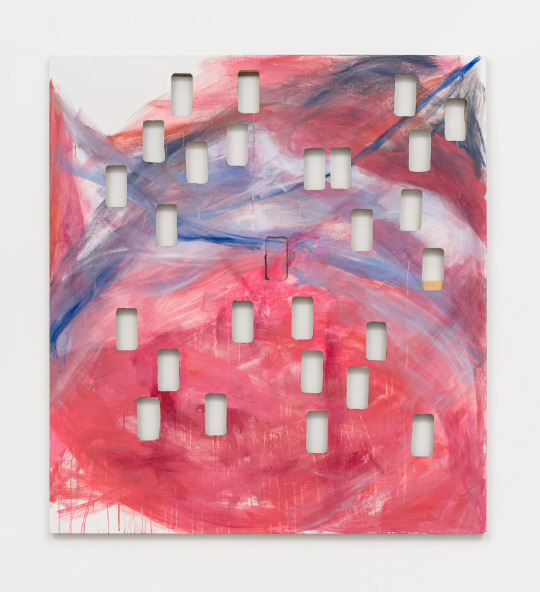
The holes are cell phone sized.
You can read about the show here, but here's a representative quote: “The iPhone promises freedom, and control over communication,” she says. “It’s an outlet of self-expression, and an escape and a distraction from the bigger picture of what’s going on in the world. It’s also useful for making paintings.”
Gordon is a woman, and a woman over 70 at that — by any measure an underrepresented perspective in popular culture. However, I’d caution against reading The Collective solely as a feminist statement. “I'm a Man,” for instance, is told from the perspective of an incel male, an act of storytelling and empathy not propaganda. My sense is that Gordon is pretty sick of being asked, “What's it like to be a girl in a band?” (per “Sacred Trickster”) and would like, maybe, to be considered as an artist.
It's partly a generational thing. I'm a little younger than she is, but we both grew up in the patriarchy and mostly encountered gender as an external restriction.
As an aside, one of my proudest moments was when Lucas Jensen interviewed me about what it was like to be a freelance music writer, anonymously, and Robert Christgau wrote an elaborate critique of the piece that absolutely assumed I was a guy. If you're not on a date or getting married or booking reproductive care, whose business is it what gender you are?
There, that's a can of worms, isn't it?
Jonathan Shaw: Feminine isn't feminist. I haven't listened nearly closely enough to the record to hazard an opinion about that. More important, it seems to me the masculine must be in the feminine unconsciousness, and the other way around, too. Precisely because femininity has been used as a political weapon, it needs imagining in artistic spaces. Guess I also think those terms more discursively than otherwise: there are male authors who have demonstrated enormous facility with representing femininity. James, Joyce, Kleist, and so on. Gordon has always spoken and sung in ways that transcend a second-wave sort of feminine essence. “Shaking Hell,” “PCH,” the way she sings “I Wanna Be Your Dog.”
youtube
Jennifer Kelly: Sure, she has always been shape-shifter artistically.
The lyrics are super interesting, but almost obliterated by noise. I’m seeing a connection to our hyperconnected digital society where everything is said but it’s hard to listen and focus.
Bill Meyer: Concrete guy that I am, I’ve found myself wishing I had a lyric sheet even though her voice is typically the loudest instrument in the mix.
Andrew Forell: Yes, that sense of being subsumed in the white noise of (dis)information and opinion feels like the utopian ideal of democratizing access has become a cause and conduit of alienation in which the notion of authentic voices has been rendered moot. It feels integral to the album as a metaphor
Christian Carey: How much of the blurring of vocals (good lyrics — mind you) might involve Kim’s personal biography, I wonder? From her memoirs, we know how much she wished for a deflection of a number of things, most having to do with Thurston and the disbandment of SY.
Thurston was interviewed recently and said that he felt SY would regroup and be able to be professional about things. He remarked that it better be soon: SY at eighty wouldn’t be a good look!
Andrew Forell: And therein lies something essential about why that could never happen
Ian Mathers: I know I’m far in the minority here (and elsewhere) because I’ve just never found Sonic Youth that compelling, despite several attempts over the years to give them another chance. And for specifically finding Thurston Moore to be an annoying vocal presence (long before I knew anything about his personal life, for what it's worth). So, I’m in no hurry to see them reunite, although I do think it would be both funny and good if everyone except Moore got back together.
Having not kept up with Gordon much post-SY beyond reading and enjoying her book, I wasn’t sure what to expect from this record. After a couple of listens, I’m almost surprised how much I like it. Even though I’m lukewarm on SY’s music, she’s always been a commanding vocal presence and lyricist and that hasn’t changed here (I can echo all the praise for “I’m a Man,” and also “I was supposed to save you/but you got a job” is so bathetically funny) and I like the noisier, thornier backing she has here. I also think the parts where the record gets a bit more sparse (“Shelf Warmer”) or diffuse (“Psychic Orgasm”) still work. I've enjoyed seeing all the comparisons here, none of which I thought of myself and all of which makes sense to me. But the record that popped into my head as I listened was Dead Rider’s Chills on Glass. Similar beat focus, “thick”/distorted/noisy/smeared production, declamatory vocals. I like that record a lot, so it's not too surprising I'm digging this one.
youtube
Jennifer Kelly: I loved Sonic Youth but have zero appetite for the kind of nostalgia trip, just the hits reunion tour that getting back together would entail.
Jonathan Shaw: Yeah, no thanks to that.
RE Christian's comment: Not sure I see deflection so much as the impossibility of integration. We are all many, many selves, always have been. Digital communications interfaces and social media have just lifted it to another level of experience. Gordon sez, “I don't miss my mind.” Not so much a question of missing it in the emotional/longing sense, more so acknowledging that phrases like “my mind” have always been meaningless. Now we partition experience and identity into all of these different places, and we sign those pieces of ourselves over, to Zuck and the algorithms. We know it. We do it anyways, because it's the candy house, full of sweets and pleasures that aren't so good for us, but are really hard to resist. “Come on, sweets, take my hand...”
Bill Meyer: I would not mind hearing all of those SY songs I like again, can’t lie, although I don’t think that I’d spend Love Earth Tour prices to hear them. But given the water that has passed under the bridge personally, and the length of time since anyone in the band has collaborated creatively (as opposed to managing the ongoing business of Sonic Youth, which seems to be going pretty well), a SY reunion could only be a professionally presented piece of entertainment made by people who have agreed to put aside their personal differences and pause their artistic advancement in order to make some coin. There may be good reasons to prioritize finances. Maybe Thurston and/or Kim wants to make sure that they don’t show up on Coco’s front door, demanding to move their record or art collection into her basement, in their dotage. And Lee’s a man in his late 60s with progeny who are of an age to likely have substantial student loan debt. But The Community is just the kind of thing they’d have to pause. It feels like the work of someone who is still curious, questioning, commenting. It's not just trying to do the right commercial thing.
Justin Cober-Lake: I’m finding this one to be a sort of statement album. I’d stop short of calling it a concept album, but there seems to be a thematic center. I think a key element of the album is the way that it looks for... if not signal and noise, at least a sense of order and comprehensibility in a chaotic world. Gordon isn’t even passing judgment on the world — phones are bad, phones are good, phones make art, etc. But there’s a sense that our world is increasingly brutal, and we hear that not just in the guitars, but in the beats, and the production. “BYE BYE” really introduces the concept. Gordon’s leaving (and we can imagine this is autobiographical), but she’s organizing everything she needs for a new life. “Cigarettes for Keller” is a heartbreaking line, but she moves on, everything that makes up a life neatly ordered next to each other, iBook and medications in the same line. It reminds me of a Hemingway character locking into the moment to find some semblance of control in the chaos.
Getting back to gender, there’s a funny line at the end: one of the last things she packs is a vibrator. I'm not sure if we're to read this as a joke, a comment on the necessity of sexuality in a life full of transitory moments, as a foreshadowing of the concepts we’ve discussed, or something else. The next item (if it’s something different) is a teaser, which could be a hair care product or something sexual (playing off — or with — the vibrator). Everything's called into question: the seriousness of the track, the gender/sexuality ideas, what really matters in life. Modern gadgets, life-sustaining medicines, and sex toys all get equal rank. That tension really adds force to the song.
Coming out of “BYE BYE,” it's easy to see a disordered world that sounds extremely noisy, but still has elements we can comprehend within the noise. I don’t want to read the album reductively and I don't think it's all about this idea, but it's something that, early on in my listening, I find to be a compelling aspect of it.
youtube
#dusted magazine#listeningpost#kim gordon#the collective#jennifer kelly#jonathan shaw#bill meyer#andrew forell#bryon hayes#tim clarke#christian carey#ian mathers#justin cober-lake
20 notes
·
View notes
Text

October 2015. I was a bit dubious about this miniseries, which is an origin story of John Shaft, Ernest Tidyman's private investigator character who later featured in a trio of blaxploitation movies (perhaps best known today for the first film's Isaac Hayes soundtrack), but it's pretty decent. The plot breaks no new ground for the genre: John Shaft is a Vietnam veteran and former boxer who becomes a private detective and ends up trying to avenge the murder of his girlfriend, even though it means bucking the mob and the city's corrupt cops in the process. However, it's refreshingly straightforward and appropriately tough-minded, resisting any impulse to self-mockery. If you like the movies, it's not a bad companion piece. (I've never read the Tidyman novels.)
The interior art is by Bilquis Everly, less fanciful than her recent Wonder Woman and Supergirl work, but with a nice flair for real-world characters that suits the gritty mood. Maybe the biggest complaint is that her Shaft doesn't look anything like Richard Roundtree, who played the character in the movies and TV show. Walker's notes at the end say this was deliberate, to bring the character closer to the description in the novels (and one supposes there were likeness rights issues as well), but if you're mainly familiar with the movies — which are of course part of the blaxploitation canon — it's hard not to feel the character doesn't really look like John Shaft, even a somewhat younger John Shaft.
#comics#movies#blaxploitation#david f walker#bilquis evely#denys cowan#bill sienkiewicz#shaft#john shaft#ernest tidyman#isaac hayes#richard roundtree
18 notes
·
View notes
Text
youtube
Korn - MTV Unplugged (March 5th, 2007)
Lineup:
Jonathan Davis - Vocals
James "Munky" Shaffer - Guitar
Reginald "Fieldy" Quincy - Bass
Guest/Session:
Rob Patterson - Additional Guitar
Kalen Musmecci - Percussion, Backing Vocals
Michael Jochum - Percussion
Zachary Baird - Keyboards
Jeremy Turner - Cello
Evie Koh - Cello
Julie Green - Cello
Erik Friedlander - Cello
Bill Ellison - Upright Bass
Jeff Carney - Upright Bass
Michael Davis - Trombone
Jeff Nelson - Trombone
Dale Struckenbruck - Musical Saw
Bill Hayes - Glass Armonica
Morris Kainuma - Cimbasso
Andy Bove - Cimbasso
Hana Yoshikawa, Heather McPherson, Wynn Yamami, Midori Yasuda, Alan Okada, Merle Okada - Taiko Drums
#Korn#Acoustic#Jonathan Davis#James Shaffer#Munky#Reginald Quincy#Fieldy#Rob Patterson#Kalen Musmecci#Michael Jochum#Zachary Baird#Jeremy Turner#Evie Koh#Julie Green#Erik Friedlander#Bill Ellison#Jeff Carney#Michael Davis#Jeff Nelson#Dale Struckenbruck#Bill Hayes#Morris Kainuma#Andy Bove#Hana Yoshikawa#Heather McPherson#Wynn Yamami#Midori Yasuda#Alan Okada#Merle Okada#United States
3 notes
·
View notes